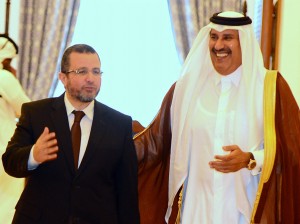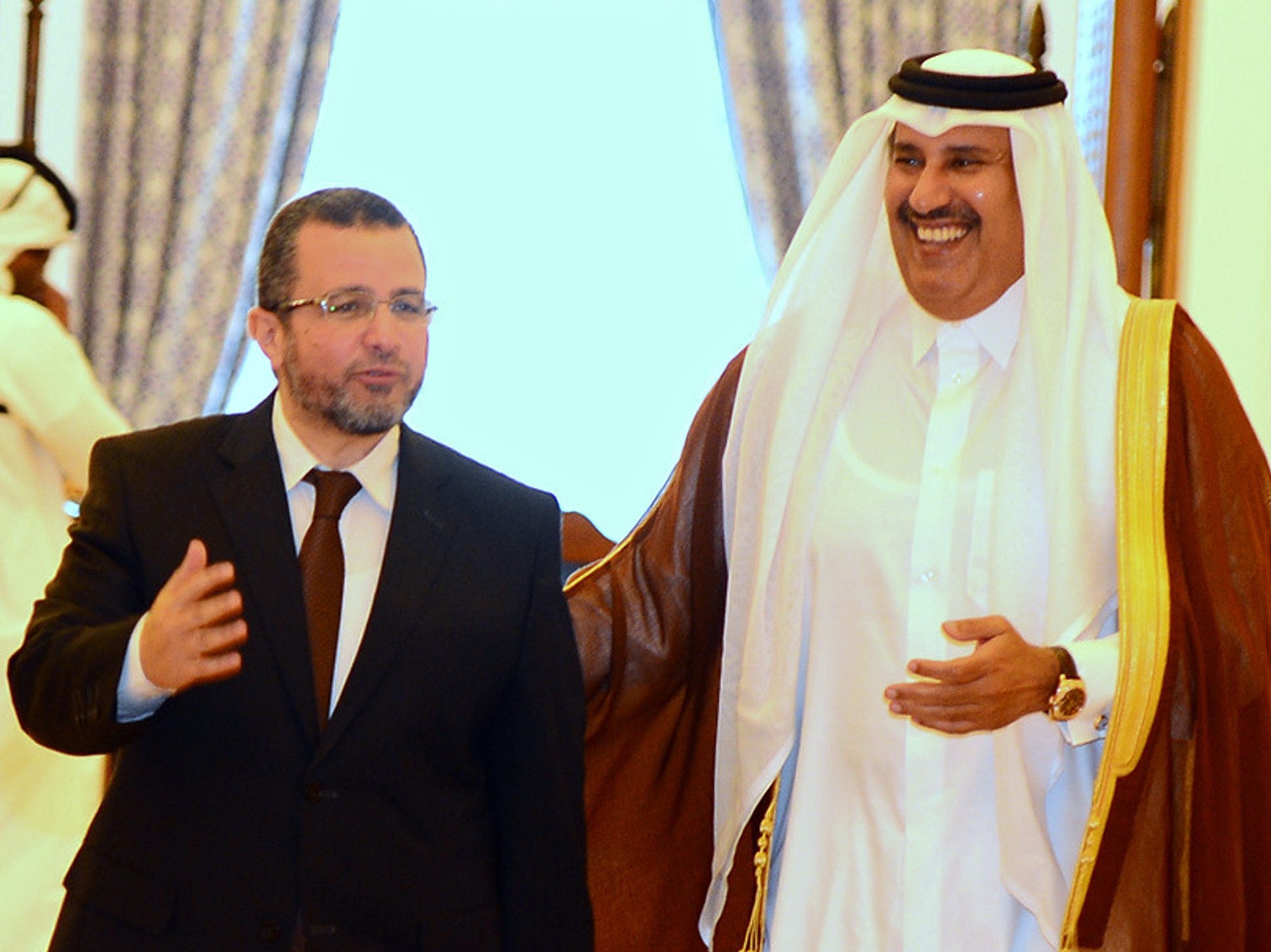
(AFP Photo)
By Nada Badawi
Egypt has not yet received Qatar’s financial deposit of $3bn intended for buying bonds, said Central Bank of Egypt (CBE) Governor Hesham Ramez.
Ramez made the statements about the pending Qatari aid during a meeting organised by the American Chamber of Commerce (ACC) in Cairo, on the sidelines of his current visit to Washington, in cooperation with the Egyptian-American Business Council (EABC).
Qatari Prime Minister Hamad Bin Jassim Al Thani had promised the amount to Egypt after meeting with Egyptian Prime Minister Hesham Qandil earlier this month.
Libya has also promised to grant Egypt $2bn around the same time.
Ramez, however, stated that he did not participate in the talks concerning the financial aid sent by Qatar or Libya.
The governor visited Qatar before the country announced the $3bn in aid to Egypt, to participate in a meeting for Arab financial officials.
He has also stated that a number of statements have been made since 2011 regarding Qatari aid to Egypt, but “none have been implemented”.
The aid had been promised to help support Egypt’s economy as it currently struggles with high levels of unemployment, a devaluation of the Egyptian pound against the US dollar, critically low foreign currency reserves, and low tourism revenues.
Egypt is also in the midst of ongoing talks with the International Monetary Fund (IMF) over a $4.8bn loan package, which will help unlock further billions in aid if an agreement is reached.
“Every day that goes by without international support adds more risk to the situation, especially because Egypt is facing difficult times,” he said, according to independent media.
Ramez said he believes the exchange rate will become stable again when the economy’s performance improves, and added that his mission is to “build up a solid reserve through real economic activity and direct and indirect foreign investment, not to eliminate the black market, even at the expense of draining reserves”.
The IMF said on Friday that $5bn promised by Qatar and Libya in support for Egypt is not a substitute for the stalled IMF loan.




